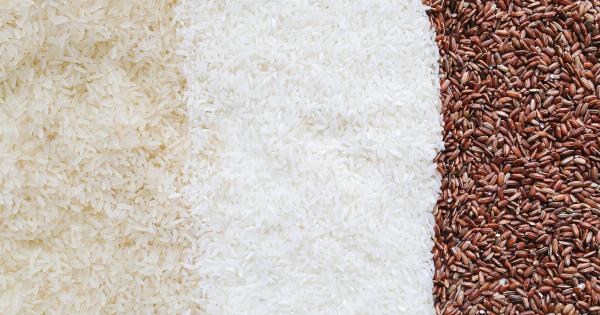Fiber is known for helping regulate bowel movements, but it also has a great impact on health and longevity. Studies have shown that a fiber-rich diet can help reduce the risk of premature death.
In this article, we will discuss the benefits of fiber and its role in reducing the risk of premature death.
What is Fiber?
Fiber is a carbohydrate that is not digested or absorbed by the body. It passes through the digestive system almost intact, providing bulk and eventually being eliminated from the body. There are two types of fiber; soluble and insoluble.
Soluble fiber dissolves in water and forms a gel-like substance. It helps lower cholesterol and glucose levels while insoluble fiber promotes regular bowel movements.
The Benefits of Fiber
Fiber has many benefits to the body, and these are just a few:.
1. Reducing the Risk of Premature Death
Fiber has been shown to reduce the risk of premature death by up to 30%.
A study published in the Archives of Internal Medicine found that every 10-gram increase in fiber intake per day was associated with a 10% decrease in the risk of death from all causes. Another study published in the American Journal of Clinical Nutrition found that people who ate more fiber had a 22% lower risk of premature death.
2. Lowering Cholesterol Levels
Fiber helps lower cholesterol levels by binding to bile acids, which are made from cholesterol in the liver. When fiber binds to bile acids, they are removed from the body, and the liver has to produce more bile acids from cholesterol.
This process helps reduce the amount of cholesterol in the blood.
3. Regulating Blood Sugar Levels
Fiber slows down the absorption of sugar in the blood, helping to regulate blood sugar levels. Soluble fiber can help lower the risk of developing type 2 diabetes by improving insulin sensitivity.
4. Maintaining a Healthy Weight
Fiber-rich foods are usually low in calories and high in volume, leaving you feeling full without consuming excess calories.
Studies have shown that people who eat a fiber-rich diet have a lower body weight, body mass index (BMI), and waist circumference.
5. Protection Against Certain Diseases
Fiber has been linked to protection against certain diseases such as heart disease, stroke, and some types of cancer.
Soluble fiber can help lower blood pressure, reduce inflammation, and improve artery function, all of which reduce the risk of heart disease and stroke. Insoluble fiber can help prevent colon cancer by keeping the colon clean and healthy.
How to Get More Fiber
The recommended daily intake of fiber is 25 grams for women and 38 grams for men. Here are some tips on how to increase your fiber intake:.
1. Choose Whole Grain Foods
Swap refined grains for whole grains, such as brown rice, whole wheat pasta, and whole-grain bread. These foods are higher in fiber and other nutrients.
2. Eat More Fruits and Vegetables
Fruits and vegetables are rich in fiber, vitamins, and minerals. Aim to eat a variety of colorful fruits and vegetables every day.
3. Include Legumes and Beans
Legumes and beans are a good source of fiber, protein, and other nutrients. Add beans to soups, stews, and salads for a fiber boost.
4. Snack on Nuts and Seeds
Nuts and seeds are a good source of fiber and healthy fats. Snack on a handful of nuts or seeds between meals.
Conclusion
Fiber is an essential nutrient that provides many benefits to the body. It can reduce the risk of premature death, lower cholesterol levels, regulate blood sugar levels, maintain a healthy weight, and protect against certain diseases.
To increase your fiber intake, choose whole grain foods, eat more fruits and vegetables, include legumes and beans, and snack on nuts and seeds.






























